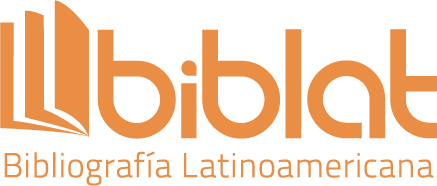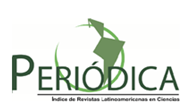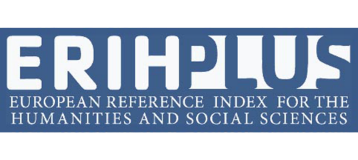Práctica pedagógica y motivación desde el aprendizaje situado
DOI:
https://doi.org/10.37511/tesis.v16n1a9Resumen
Antecedentes: la investigación aplicada sobre la aproximación situada del aprendizaje ha permitido mostrar que el aprendizaje basado en el hacer, las comunidades de práctica y el contexto, promueven la motivación y compromiso con la tarea, al mismo tiempo que favorecen la autonomía del estudiante y la construcción de significados de forma más auténtica. Objetivo: analizar cómo una metodología situada del aprendizaje influye sobre la percepción de un grupo de estudiantes frente a su motivación, a través de la implementación de una estrategia pedagógica en la clase de biología. Metodología: la investigación de naturaleza cualitativa, consistió en el diseño e implementación de una estrategia pedagógica estructurada sobre el tema de la fotosíntesis. La estrategia fue desarrollada con un grupo de estudiantes de séptimo grado en una clase de biología (n=27). La investigación consistió en tres fases, diseño de la propuesta, su implementación y el análisis de los datos. Las técnicas de recolección fueron un grupo focal con estudiantes y una entrevista estructurada con la docente. Resultados: los datos arrojados fueron organizados en tres grandes relaciones: la motivación y su impacto en la comprensión de los contenidos, la motivación como una vía para crear significado, y el rol de la práctica pedagógica para la motivación y el aprendizaje. Conclusiones: la investigación permitió constatar el efecto de la implementación de estrategias innovadoras para el aprendizaje, acogiendo aspectos situados y reconociendo la íntima relación entre afectividad y cognición.
Descargas
Referencias
Anggereini, E., Septiani, M., & Hamidah, A. (2018). Application of guided inquiry learning model in biological learning: it’s the influence to science process skills and students 'scientific knowledge in class XI MIPA high school. Paper presented in The 3rd International Conference on Mathematics, Sciences, Education, and Technology, Padang, Indonesia.
Astira, S., Dwiastuti, S., & Sajidan, S. (2018). Analysis of argumentation skills in biological learning in senior high school students. Paper presented in The International Conference on Applied Sciences, Mathematics and Informatics, Bandar Lampung, Indonesia.
Ávalos, B. (2002). Profesores para Chile. Historia de un Proyecto. Santiago de Chile: Ministerio de Educación.
Bakhtiar, A., Webster, E., & Hadwin, A.F. (2017). Regulation and socio-emotional interactions in a positive and a negative group climate. Metacognition and Learning, 3(1), 57–90. https://doi.org/10.1007/s11409-017-9178-x
Baquero, R. (1997). Vigotsky y el aprendizaje escolar. Buenos Aires: Aique Grupo Editor S.A. https://cmapspublic3.ihmc.us/rid=1MQLSN4JP-17YHV2W-14J7/art%C3%ADculo.pdf
Bereiter, C., & Scardamalia, M. (1989). Intentional learning as a goal of instruction. En L.B. Resnick (Ed.), Knowing, learning, and instruction: Essays in honor of Robert Glaser (pp. 361-392). Madrid: Erlbaum.
Bereiter, C., & Scardamalia, M. (2014). Knowledge building and knowledge creation: One concept, two hills to climb. En S.C. Tan, H.J. So, & J. Yeo (Eds.), Knowledge creation in education (pp. 35–52). Singapur: Springer. https://doi.org/10.1017/CBO9781139519526.025
Bogdan, R., & Meneses, J. (2019). Preferencia por contenidos científicos de física o de biología en Educación Primaria: un análisis clúster. Revista Eureka sobre Enseñanza y Divulgación de las Ciencias. 16(1), 1104 https://doi.org/10.25267/Rev_Eureka_ensen_divulg_cienc.2019.v16.i1.1104
Buitrago, B.L. (2008). La didáctica: Acontecimiento vivo en el aula. Revista Científica Guillermo de Ockham, 6, 55-67. https://www.redalyc.org/articulo.oa?id=105312254004
Busquets, T., Silva, M., & Larrosa, P. (2016). Reflexiones sobre el aprendizaje de las ciencias naturales: Nuevas aproximaciones y desafíos. Estudios Pedagógicos, 42, 117-135. http://dx.doi.org/10.4067/S0718-07052016000300010.
Cicek, J., Ingram, S., Friesen, M., & Ruth, D. (2017). Action research: a methodology for transformative learning for a professor and his students in an engineering classroom. European Journal of Engineering Education, 21(7), 1391-1411. https://doi.org/10.1080/03043797.2017.1405242
Clark, A. (2008). Supersizing the mind: Embodiment, action, and cognitive extension. Oxford: Oxford University Press.
Da-Rold, F. (2018). Defining embodied cognition: The problem of situatedness. New Ideas in Psychology, 51, 9-14. https://doi.org/10.1016/j.newideapsych.2018.04.001
Davis, J., & Bellocchi, A. (2019). Intensity of emotional energy in situated cultural practices of science education. Cultural Studies of Science Education. https://doi.org/10.1007/s11422-019-09931-0
De Sixte, R., & Sánchez, E. (2012). Cognición, motivación y emoción en la interacción profesor-alumno. Una propuesta para analizar su relación mediante el registro de las ayudas frías y cálidas. Infancia y Aprendizaje: Journal for the Study of Education and Development, 35(4), 483-496. https://doi.org/ 10.1174/021037012803495258
DeJaegher, H., & Di Paolo, E. (2007). Participatory sense-making. An enactive approach to social cognition. Phenomenology and the Cognitive Sciences, 6(4), 485-507. https://doi.org/10.1007/s11097-007-9076-9
Díaz, V. (2006). Formación docente, práctica pedagógica y saber pedagógico. Laurus: Revista de Educación, 12, 88-103. http://www. redalyc.org/articulo.oa?id=76109906
Dieumegard, G., Nogry, S., Ollagnier-Beldame, M., & Perrin, N. (2019). Lived experience as a unit of analysis for the study of learning. Learning, Culture and Social Interaction. En prensa.
Elizondo, A., Rodríguez, J.V., & Rodríguez, I. (2018). La importancia de la emoción en el aprendizaje: Propuestas para mejorar la motivación de los estudiantes. Cuaderno De Pedagogía Universitaria, 15(29), 3-11. https://doi.org/10.29197/cpu.v15i29.296
Fernández, M., & Jiménez, M.P. (2018). Difficulties learning about the cell. Expectations vs. reality. Journal of Biological Education, 53(3), 333-347 https://doi.org/10.1080/00219266.2018.1469542
Feryok, A. (2013). Teaching for learner autonomy: The teacher's role and sociocultural theory, Innovation in Language. Learning and Teaching, 7(3), 213-225. https://doi.org/ 10.1080/17501229.2013.836203
Froese, T., & Di Paolo, E. (2011). The enactive approach, theoretical sketches from cell to society. Pragmatics and Cognition, 19(1), 1-36. https://doi.org/10.1075/pc.19.1.01fro
Fugate, J., Macrine, S.L., & Cipriano, C. (2018). The role of embodied cognition for transforming learning. International Journal of School & Educational Psychology. 7(4), 274-288. https://doi.org/ 10.1080/21683603.2018.1443856
Gallagher, S. (2018). Decentering the brain: Embodied cognition and the critique of neurocentrism and narrow-minded philosophy of mind. Constructivist Foundations, 14(1), 8-21. https://constructivist.info/14/1/008.gallagher.pdf
Gallagher, S., & Lindgren, R. (2015). Enactive methapors: Learning through full-body engagement. Educational Psychology Review, 27(3), 391-404. https://doi.org/ 10.1007/s10648-015-9327-1
García-Jiménez, S. (2017). La motivación. Un factor determinante en el aprendizaje. Notandum. 44(13), 155-162. https://doi.org/10.4025/notandum.44.13
Gaviria, J.A. (2017). Problemas y retos de la educación rural colombiana. Revista educación y ciudad. (33) 54-62. https://doi.org/10.36737/01230425.v0.n33.2017.1647
https://revistas.idep.edu.co/index.php/educacion-y-ciudad/article/view/1647
Grams, S., & Jurowetzki, R. (2015). Emotions in the classroom. En B. Lund & T. Chemi, (Eds.), Dealing with Emotions (pp. 81-98). Rotterdam: Sense Published.
Gruppen, L., Irby, D., Durning, S., & Maggio, L. (2019). Conceptualizing learning environments in the health professions. Academic Medicine, 94(7), 969-974. https://doi.org/10.1097/ACM.0000000000002702
Hennessey, B. (2010). The creativity-motivation connection. En R. Sternberg & J. Kaufman, (Eds.), The cambridge handbook of creativity (pp. 342-365). Cambridge: Cambridge University Press.
Hernández, S.R., Fernández, C.C., & Baptista, L.P. (2014). Metodología de la Investigación. México: Mc. Graw Hill.
Järvelä, S. & Renninger, K. (2014). Designing for learning: Interest, motivation and engagement. En K. Sawyer, (Ed.), The Cambridge Handbook of the Learning Science (pp. 668-685). New York: Cambridge University Press.
Jufri, A.W., Milla, D., & Soeprianto, H. (2019). The effectiveness of project-based learning for biology class in developing the science processing skills and creativity of high school students. Unnes Science Education Journal, 8(1), 25-30. https://doi.org/10.15294/USEJ.V8I1.15485
Kim, C.M., & Pekrun, R. (2014). Emotions and motivations in learning and performance. En J.M. Spector, M.D. Merrill, J. Elen & M.J. Bishop, (Eds.), Handbook of research on educational communications and technology (pp.65-75). New York: Springer Science.
Kisoglu, M. (2018). An examination of science high school students’ motivation towards learning biology and their attitude towards biology lesson. International Journal of Higher Education. 7(1), 151-164. https://doi.org/10.5430/ijhe.v7n1p151
Lave, J., & Wenger, E. (1991). Situated Learning: Legitimate Peripheral Participation. New York: Cambridge University Press.
León, A., Ospina, L., & Ruiz, R. (2012). Tipos de aprendizaje promovidos por los profesores de matemática y ciencias naturales del sector oficial del departamento del Quindío, Colombia. Revista Científica Guillermo de Ockham, 10(2), 49-63. https://www.redalyc.org/articulo.oa?id=1053/105325282005
Maiese, M. (2017a). Transformative learning, enactivism, and affectivity. Studies in Philosophy and Education, 36(2), 197-216. https://doi.org/10.1007/s11217-015-9506-z
Maiese, M. (2017b). Can the mind be embodied, enactive, affective, and extended. Phenomenology and the Cognitive Sciences, 17, 343-361. https://doi.org/10.1007/s11097-017-9510-6
Martí, E. (2017). Body, culture and cognition: avoiding reductionist temptations. Studies in Psychology. https://doi.org/10.1080/02109395.2016.1268392
Martínez-Royert, J. C., Berthel-Regino, Y., & Vergara-Díaz, M. S. (2017). Burnout syndrome in teachers and its relation with the learning of primary students of an official educational institution of Sincelejo. Revista Científica Salud Uninorte, 33(2), 118–128. https://doi.org/10.14482/sun.33.2.10538
Mavilidi, M.F., Okely, A., Chandler, P., & Paas, F. (2017). Effects of integrating physical activities into a science lesson on preschool children’s learning and enjoyment. Applied Cognitive Psychology, 31 281-290. https://doi.org/10.1002/acp.3325
Meirovich, G. (2012). Creating a favorable emotional climate in the classroom. The International Journal of Management Education, 10(3), 169–177. https://doi.org/10.1016/j.ijme.2012.06.001
Melville, W., Bertley, A., & Fazio, X. (2013). Scaffolding the inquiry continuum and the constitution of identity. International Journal of Science and Mathematics Education, 11, 1255–1273. https://doi.org/10.1007/s10763-012-9375-7
Mendoza, J.E. (2018). 4E’s de la cognición: ¿una o muchas formas de entender la “cognición”?. México: Instituto de Investigaciones Filosóficas UNAM. http://www.filosoficas.unam.mx/docs/882/files/Mendoza_Bock_4Ecognicio%CC%81n_EA-IIfs-UNAM.pdf
Meyer, D., & Turner, J.C. (2007). Scaffolding emotions in classrooms. En P. A. Schutz & R. Perkrun, (Eds.), Emotion in education (pp. 243-258). Oxford, UK: Elsevier Science.
Ministerio de Educación Nacional (MEN) (2017). Plan Decenal de Educación 2016-2026. http://www.plandecenal.edu.co/cms/media/herramientas/PNDE%20FINAL_ISBN%20web.pdf
Newen, A., De Bruin, L., & Gallagher, S. (2018). The Oxford handbook of 4E cognition. Oxford: Oxford University Press.
Organización para la Cooperación y el Desarrollo Económicos (OCDE) (2016). Revisión de políticas nacionales en educación: La educación en Colombia. Bogotá: Ministerio de Educación Nacional.
Picó, M. (2014). La importancia de la motivación en el rendimiento académico de los estudiantes de Educación Secundaria Obligatoria. https://dspace.uib.es/xmlui/handle/11201/3589
Pozo, J. (2017). Learning beyond the body: from embodied representations to explicitation mediated by external representations. Infancia y Aprendizaje, 40, 219-276. https://doi.org/10.1080/02103702.2017.1306942
Purwianingsih, W., Rochintaniawati, D., Sukarso, A., & Widodo, A. (2018). The potential of students’ creative disposition as a perspective to develop creative teaching and learning for senior high school biological science. Paper presented in The International Conference on Mathematics and Science Education, Universitas Pendidikan Indonesia, Indonesia.
Ramstead, M.J., Veissière, S.P.L., & Kirmayer, L.J. (2016). Cultural affordances: Scaffolding local worlds through shared intentionality and regimes of attention. Frontiers in Psychology, 7(599), 1-21. https://doi.org/10.3389/fpsyg.2016.01090
Reeve, J. (1994). La motivación. Barcelona: Herder.
Reiser, B., & Tabak, I. (2014). Scaffolding. En K. Sawyer, (Ed.), The cambridge handbook of the learning sciences (pp. 44-62). New York: Cambridge University Press.
Rhoads, K., & Weber, K. (2016). Exemplary high school mathematics teachers’ reflections on teaching: A situated cognition perspective on content knowledge. International Journal of Educational Research, 78, 1–12. https://doi.org/10.1016/j.ijer.2016.02.006
Rodríguez, G., Gil, J., y García, E. (1996). Metodología de la Investigación Cualitativa. Granada: Editorial Algibe.
Rogat, T., & Linnenbrink-Garcia, L. (2011). Socially shared regulation in collaborative groups: An analysis of the interplay between quality of social regulation and group processes. Cognition and Instruction, 29(4), 375-415. https://doi.org/10.2307/23050837
Rogoff, B. (1990). Apprenticeship in thinking: Cognitive development in social context. New York: Oxford University Press.
Rogoff, B., Goodman, C., & Bartlett, L. (2001). Learning together. New York: Oxford University Press.
Runge, A.K., & Garcés, J.F. (2010). Alcances y limitaciones de la formación de maestros desde la perspectiva de las competencias en la Resolución 5443 del 30 de junio de 2010: ¿aún es la pedagogía el saber fundante de la formación de maestros? Revista Educación y Pedagogía, 22(57), 187-199. https://revistas.udea.edu.co/index.php/revistaeyp/article/view/7404
Salgado, A. (2007). Investigación cualitativa: diseños, evaluación del rigor metodológico y retos Liberabit. Revista de Psicología, 13, 71-78. http://www.scielo.org.pe/scielo.php?script=sci_arttext&pid=S1729-48272007000100009
Schlicht, T. (2018). Critical Note: Cognitive Systems and the Dynamics of Representing-in-the-world. En L., Bruin, Gallagher, S. y Newen, A. (Eds), The oxford handbook of 4e cognition (pp. 242-266).Oxford: Oxford University Press.
Serrano, J.M., & Pons, R.M. (2011). El constructivismo hoy: enfoques constructivistas en educación. Revista Electrónica de Investigación Educativa. 13(1), 1-27. https://redie.uabc.mx/redie/article/view/268
Shumacher, D., Englander, R., & Carraccio, C. (2013). Developing the master learner: Applying learning theory to the learner, the teacher, and the learning environment. Academic Medicine, 88(11), 1635-1645. https://doi.org/10.1097/ACM.0b013e3182a6e8f8
Simon, H. (1962). An Information processing theory of intellectual development. Monographs of the Society for Research in Child Development, 27(2), 150-161. http://doi.org/10.2307/1165536
Tagle, T. (2011). El enfoque reflexivo en la formación docente. Revista Calidad en la Educación, 34, 203-215. https://dx.doi.org/10.4067/S0718-45652011000100011
Tanaka, S. (2015). Intercorporeality as a theory of social cognition. Theory & Psychology, 25(4), 455-472. https://doi.org/:10.1177/0959354315583035
Torrejano-Vargas, R.H. (2015). La educación que merecemos no es la educación que tenemos: el problema de la falta de calidad en la educación básica y secundaria en Colombia, 1903-1933. Jangwa Pana, 14(1), 59–74. https://doi.org/10.21676/16574923.1567
Turner, J.C., Meyer, D.K., & Schweinle, A. (2003). The importance of emotion in theories of motivation: Empirical, methodological, and theoretical considerations from a goal theory perspective. International Journal of Educational Research, 39, 375–393. https://doi.org/ 10.1016/j.ijer.2004.06.005
Van den Berg, M. (2013). An enactivist approach to teaching and learning critical reasoning in ODL. Progressio, 35(1), 190-205. http://hdl.handle.net/10500/14609
Versace, R., Vallet, G., Riou, B., Lesourd, M., Labeye, E., & Brunel, L. (2014). Act-In: an integrated view of memory mechanisms. Journal of Cognitive Psychology, 26(3), 280-306. https://doi.org/10.1080/20445911.2014.892113
Vigotsky, L.S. (1989). Fundamentos de Defectología, Obras Completas. Ciudad de la Habana: Editorial Pueblo y Educación.
Wang, M., & Zheng, X. (2018). Embodied cognition and curriculum. Construction Educational Philosophy and Theory, 50(3), 217-228. https://www.tandfonline.com/doi/full/10.1080/00131857.2017.1339342
Descargas
Publicado
Número
Sección
Licencia

Esta obra está bajo una Licencia Creative Commons Atribución-NoComercial-















